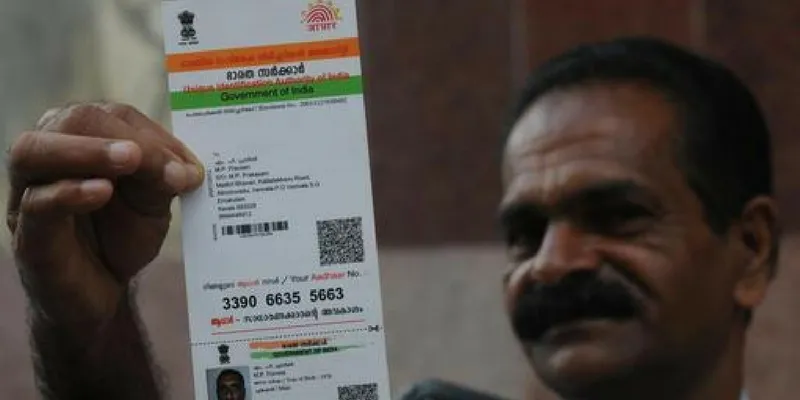Saving Private Kumar – any Aadhaar to the fear?
What’s needed is a wider debate on privacy in the digital age.
Every time you consume the digital, you leave a clear footprint – whether it is surfing or transacting on the internet on your mobile, or swiping plastic at an ATM, or at a point-of-sale machine when you shop. Banks always have a wealth of data on you, which they now want to mine clinically to get a 'full view' to cross-sell or 'understand your needs better'.
They also 'pool' this information at the systemic level with credit-scoring firms and, at times, also share this with all kinds of other vendors. Then just about every other e-commerce platform 'minds you' these days.

If all of this is going on anyway, what then is the fuss about Aadhaar and privacy?
With Aadhaar, the fear is the state can profile and invade your privacy in a manner that private firms can’t. And track you like a migratory bird. It’s debatable if the state is any superior on this front.
Just recall the outcry in 2014 when file-sharing app Dropbox went ahead to appoint Condoleezza Rice—the former US Secretary of State—to its Board of Directors. It would have gone unnoticed, but in a 2005 interview, Rice had justified the National Security Agency’s warrantless surveillance programme. It’s not to suggest here that Dropbox was doing or intended to do anything of the sort (there’s no way of knowing all this), but if it wanted to, it could well have gone ahead with it – with or without Rice. So too can any cloud-storage company whose services you now consume.
The point is both the state and private firms can snoop on you if they want to. What’s needed is a wider debate on privacy and the course of remedial action in case of abuse or breach in the digital age.
Financial inclusion, identity, and privacy
Target 16.9 of the United Nation’s Sustainable Development Goals (SDGs) seeks to secure “legal identity for all, including 'birth registration' by 2030. And hence the moves to steal legal identification systems -- civil registries, national IDs, population databases, voter registries, social transfer databases, travel documents, and just about anything else that says something about you—who you are and what you do—on record.
But is such detailed profiling needed?
The `Principles on Identification for Sustainable Development: Toward the Digital Age’ (World Bank and the Centre for Global Development) notes some 1.5 billion people in the developing world lack proof of legal identity. That the 'identification gap' is a serious obstacle to participation in political, economic, and social life. Without a secure and trustworthy way to prove your identity, you may be unable to exercise the range of human rights set out in international laws and conventions.
A lack of identification also makes it difficult to open a bank account, vote, obtain formal employment, access education, healthcare, receive a social transfer, buy a SIM card, or seek legal redress. And weak identification systems lead to difficulties in administration, planning, and service delivery, including tax collection, social programmes, response to emergencies, and security in general.
So, inclusive development needs a sustained effort to address the world’s identification gap.
The trouble is, if you don’t have strong data protection laws, it can reduce trust and undermine individual rights to privacy, and consent regarding the use of their personal information. In some cases, they may put vulnerable groups at serious risk of harm. And in an age where corporations—home-grown and multinational—influence states, or work closely with them, making a distinction over who holds the keys to your data is misplaced. So why single out Aadhaar?
(Image credit: Aadhaar Card Kendra)






